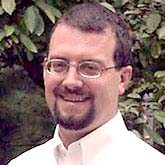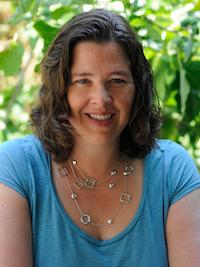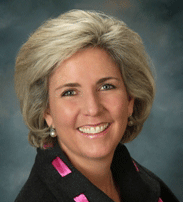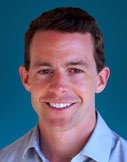Decision Making and Climate Security for Business from Security & Sustainability Forum. Click here for the GSI final slides
Aired on January 27, 2016

SSF and Arizona State University’s Global Security Initiative had their fourth webinar in the five-part series on Global Climate Security. This webinar examined how business is valuing climate impacts. To view the earlier webinar videos, go to the Security and Sustainability Forum archives.
Independent of government planning and preparedness for resiliency, business has decisions to make in terms of infrastructure and supply chain dependability. The first is a local issue, but the second is a global one, especially for international companies. Concerns are likely different depending on location and the inputs to development of goods and services. The webinar focused on how business can incorporate climate risks assessments and resiliency into its planning and investments in its supply chain, workforce and infrastructure.
The Lineup

Moderator:Clark Miller is a Senior Sustainability Scientist with the Julie Ann Wrigley Global Institute of Sustainability Associate and Professor, School for the Future of Innovation in Society. His research focuses on science, technology & globalization, with a particular emphasis on the design and critical analysisof knowledge systems in support of international and global policy making. He is the co-editor of Changing the Atmosphere: Expert Knowledge and Environmental Governance (with Paul Edwards); Arizona’s Energy Future; and Nanotechnology, the Brain, and the Future.
Panelists:

Kate Gordon is Vice Chair of Climate and Sustainable Urbanization at the Paulson Institute, where she provides overall strategy and coordination for the Institute’s climate change, air quality, and sustainable urbanization programs both in the US and China. She is also a Senior Fellow at the Center for American Progress and a regular contributor to the Wall Street Journal as one of the paper’s “Energy Experts.” Before joining the Paulson Institute, she was Senior Vice President for Climate and Energy at Next Generation, a non-partisan think tank based in San Francisco, where she worked on California policy development as well as large-scale national communications and research projects. While at Next Generation, she helped launch and lead the “Risky Business Project,” co-chaired by Michael Bloomberg, Henry Paulson, and Tom Steyer, and focused on the economic risks the U.S. faces from unmitigated climate change.

Lindene Patton is an expert in international risk management and policy and predictive analytics, including risk identification, modeling and validation. She has been responsible for designing and executing operational risk management solutions, building corporate-community partnerships, managing cross-company projects, crafting strategic communication platforms, serving as a trusted information advisor, and fostering business process improvements. She has Testified in both the U.S. Senate and U.S. House of Representatives, had multiple appointments to the World Economic Forum (WEF) Global Agenda Councils; authored and contributed to multiple WEF reports and events and to the Geneva Association working groups. She is the former Chief Climate Product Officer for Zurich, led Hazard Product and Strategy for Corelogic and currently consults on business strategy and restructuring, insurance and risk management.

Nancy Colleton is an international leader in environmental communication and information. As the president of the Institute for Global Environmental Strategies (IGES) she leads numerous initiatives that promote better understanding of the changing planet. She collaborates with senior-level government and industry executives to increase the awareness, value and use of Earth observations and to emphasize the need for a comprehensive strategy to ensure that citizens, business, and government at all levels have the environmental intelligence needed for improved decision making. Through high-visibility meetings, networking, opinion pieces, government liaison, testimony and media appearances, Ms. Colleton has highlighted the need to leverage investment in Earth observations for a growing and diverse user community. Ms. Colleton leads the Alliance for Earth Observations and co-chairs the Environmental Information Services Working Group (EISWG) of the National Oceanic and Atmospheric Administration (NOAA) Science Advisory Board.

David Livingston is an associate in Carnegie’s Energy and Climate Program, where his research focuses on innovation, markets, and risk. Prior to joining Carnegie, David gained experience at the World Trade Organization in Geneva and at the United Nations Industrial Development Organization (UNIDO) in Vienna. He has consulted for a number of organizations on projects relating to climate change, green growth, and stranded assets. Livingston is also an adjunct lecturer at the University of Southern California, teaching a course on energy markets and policy at the University’s Washington, DC center. He was selected as a Future Energy Leader for the 2014-2017 term of the World Energy Council, and currently serves on the Council’s Task Force on Rules of Trade & Investment. Livingston is also a nonresident associate of Carnegie Europe in Brussels, and serves as a member of the Unconventional Hydrocarbons Network, an advisory committee to the European Commission. He is a member of the Royal Institute for International Affairs (Chatham House) and the International Association for Energy Economics. In addition, he serves on the advisory board of SXSW Eco and a number of social enterprises.
